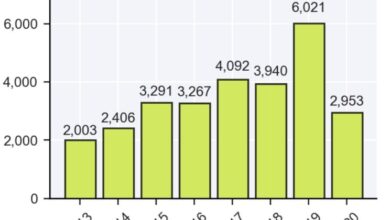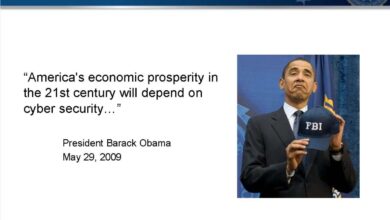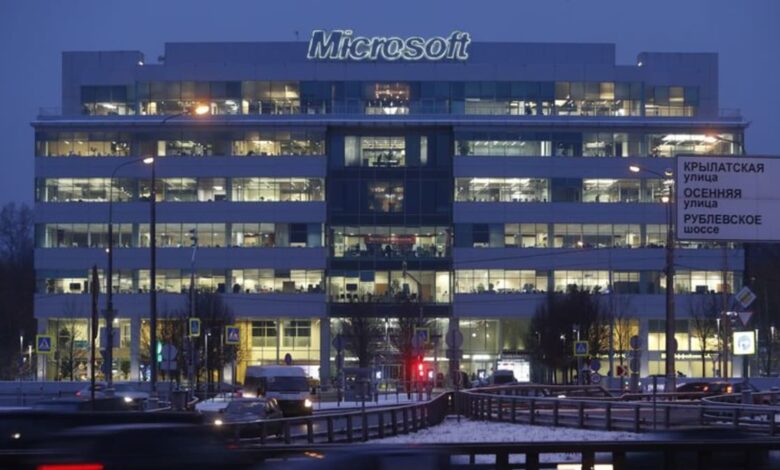
Avast Cybersecurity Firm Pulls Out of Russia
Avast cybersecurity firm pulls out its operations in Russia – a move that sent ripples through the global tech world. This wasn’t a spur-of-the-moment decision; it was a calculated response to the increasingly complex geopolitical landscape and the legal minefield of operating within Russia’s evolving regulatory environment. The implications are far-reaching, impacting not only Avast’s bottom line but also the digital security of countless Russian individuals and businesses.
Avast’s withdrawal highlights the ethical dilemmas faced by multinational corporations operating in countries with questionable human rights records. The company weighed the financial risks against its moral obligations, ultimately choosing to prioritize its values. This decision sets a precedent, prompting other cybersecurity firms to re-evaluate their own strategies and consider the long-term consequences of their presence in potentially volatile regions.
Avast’s Decision to Withdraw from Russia
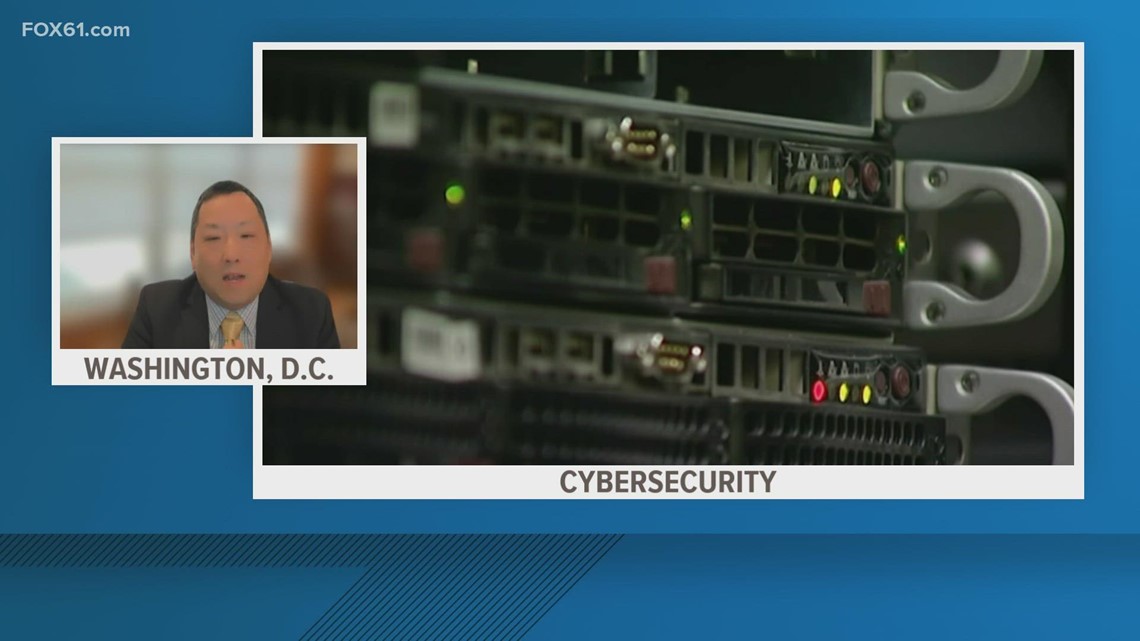
Avast’s withdrawal from Russia in 2022 wasn’t a sudden decision; it was a calculated response to the escalating geopolitical situation following the Russian invasion of Ukraine. The move highlighted the complex ethical and legal challenges faced by multinational companies operating in a country subject to international sanctions and increasing scrutiny.The geopolitical context surrounding Avast’s decision was undeniably the Russian invasion of Ukraine and the subsequent international condemnation and sanctions imposed on Russia.
This created a hostile environment for businesses, particularly those in the technology sector, due to concerns about data security, compliance with sanctions, and reputational risk. The international pressure to isolate Russia economically and politically significantly influenced Avast’s decision-making process.
Legal and Regulatory Hurdles
Continuing operations in Russia presented numerous legal and regulatory challenges for Avast. The sanctions imposed by the West created a complex web of restrictions on financial transactions and data transfers. Avast faced potential violations of these sanctions if it continued to operate within Russia, exposing the company to substantial fines and legal repercussions. Furthermore, the evolving Russian legal landscape, including increased government control over the internet and data, posed significant risks to Avast’s operations and the privacy of its users.
The uncertainty surrounding future legal changes added to the pressure to withdraw.
Timeline of Events
While a precise, publicly available timeline isn’t readily accessible, the decision likely followed a period of internal deliberation and assessment of the risks associated with continued operation. The escalating conflict in Ukraine and the increasingly stringent sanctions likely accelerated this process. The announcement of Avast’s withdrawal would have followed internal discussions, legal consultations, and a risk assessment weighing the potential financial and reputational consequences of staying versus leaving.
This period would likely have spanned several weeks, possibly months, as Avast navigated the complexities of unwinding its operations in Russia.
Comparison with Other Cybersecurity Firms
Avast’s decision to withdraw wasn’t unique. Many other cybersecurity firms, facing similar challenges, also ceased operations in Russia. Some companies faced public pressure to take a stance against the invasion, while others prioritized compliance with international sanctions and the protection of their global operations. The response varied depending on each company’s risk tolerance, market position, and overall business strategy.
Some companies may have attempted to maintain a minimal presence, while others, like Avast, opted for a complete withdrawal to mitigate risk. The actions of these firms demonstrated the significant impact of the geopolitical climate on the global technology sector.
Impact on Avast’s Business and Customers
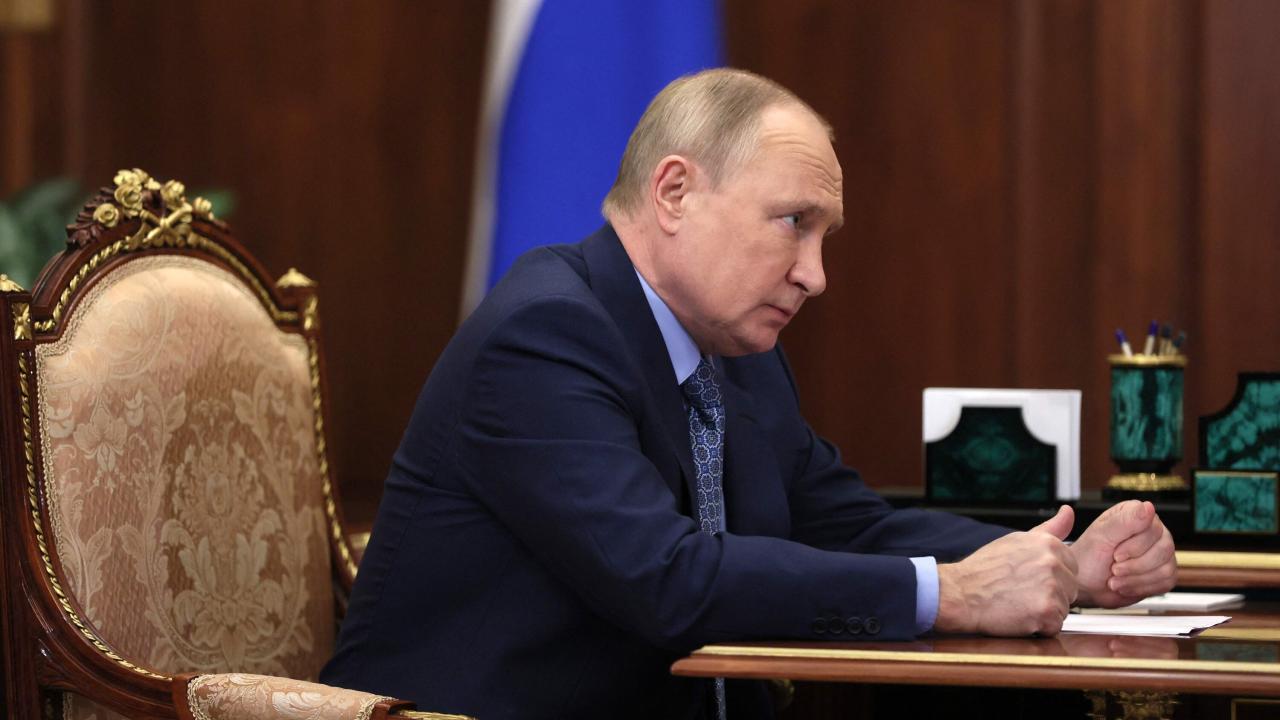
Avast’s withdrawal from Russia, while a significant ethical statement, undoubtedly carries substantial financial and operational consequences. The decision impacts not only Avast’s bottom line but also the experience of its Russian customer base, necessitating careful consideration of both immediate and long-term effects. This section explores these ramifications in detail.Avast’s revenue from the Russian market, though likely a smaller portion of its overall global revenue, will be completely lost following the withdrawal.
This loss represents a direct financial hit, impacting profitability and potentially influencing investor confidence. The extent of this financial impact depends on the precise revenue generated from Russia and the company’s ability to offset this loss through growth in other markets. We might expect to see a slight dip in Avast’s overall financial performance in the short-term, although the long-term effect will depend on the success of their global growth strategies.
It’s worth noting that other companies withdrawing from Russia have experienced similar financial impacts, with some seeing only a minor impact, while others experienced more significant losses depending on their market share in Russia.
Financial Implications for Avast
The financial implications for Avast are multifaceted. The immediate impact will be the loss of revenue streams from Russian users, including subscriptions and any other revenue-generating activities within the region. This direct loss will be felt in the company’s quarterly and annual financial reports. Further indirect costs might arise from managing the withdrawal process itself, including legal fees, severance payments for Russian employees, and the cost of transitioning existing customers to alternative services.
A precise financial quantification is difficult without access to Avast’s internal financial data, but analysts will likely scrutinize the company’s financial performance closely in the coming quarters to assess the true extent of the impact. A potential scenario might involve a minor decrease in overall revenue, but a more detailed analysis by financial experts would be needed to accurately predict the impact.
Impact on Avast’s Russian Customer Base
The withdrawal leaves Avast’s Russian customers without access to their chosen cybersecurity products and services. This poses immediate security risks, especially for those relying heavily on Avast’s products for protection against malware and online threats. The abrupt cessation of service could lead to increased vulnerability for these users, potentially resulting in data breaches or other security incidents. The level of disruption will vary depending on individual users’ reliance on Avast’s products and their ability to quickly transition to alternative solutions.
Avast’s Support Plan for Existing Russian Customers
Avast’s plan for supporting existing Russian customers likely involves providing information about the withdrawal and offering guidance on transitioning to alternative cybersecurity solutions. This might include FAQs, support documentation, and potentially partnerships with other cybersecurity providers to facilitate a smoother transition. The company’s commitment to ethical conduct will likely drive its approach to ensuring a reasonably smooth transition for its former customers.
The specific details of this plan would be publicly available on Avast’s website and likely communicated directly to affected users.
Alternative Cybersecurity Solutions for Russian Users
Numerous alternative cybersecurity solutions are available to Russian users. These range from other well-known international brands like Kaspersky (though this is a Russian company), McAfee, Norton, and Bitdefender, to smaller, regional players. The choice of alternative will depend on individual needs and preferences, with factors like cost, features, and ease of use playing significant roles. Users should carefully research and compare available options before selecting a replacement for Avast’s products to ensure they obtain adequate protection.
Ethical and Moral Considerations: Avast Cybersecurity Firm Pulls Out Its Operations In Russia
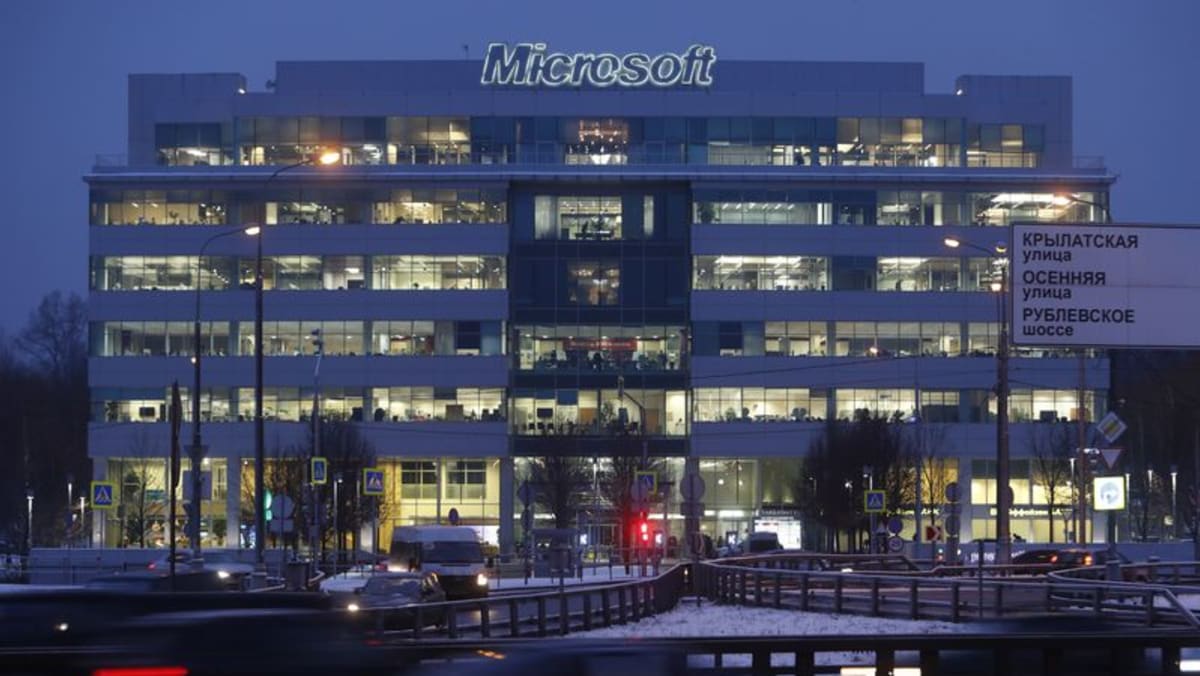
Avast’s decision to withdraw from Russia raises complex ethical and moral questions for multinational corporations operating in countries with questionable human rights records. The balance between maintaining a global presence and upholding ethical standards is a precarious one, particularly in volatile geopolitical situations. This decision highlights the inherent difficulties in navigating these conflicting priorities.The ethical considerations for Avast, and other similar companies, are multifaceted.
Operating in Russia, even before the current conflict, presented challenges related to data privacy, censorship, and potential complicity in surveillance activities. The ongoing war exacerbates these concerns, adding the potential for the misuse of cybersecurity technology for repressive purposes. Avast’s withdrawal can be viewed as a response to these ethical dilemmas, prioritizing its values over potential profits.
Impact of Avast’s Withdrawal on Russian Cybersecurity, Avast cybersecurity firm pulls out its operations in russia
Avast’s departure undoubtedly impacts the Russian cybersecurity landscape. While Avast’s market share in Russia might not have been dominant, its withdrawal reduces the overall level of cybersecurity protection available to Russian users. This leaves a void that could be filled by less reputable companies, potentially leading to increased vulnerability to malware and cyberattacks. The loss of Avast’s expertise and resources also diminishes the overall capacity for cybersecurity defense within Russia.
This effect could be particularly pronounced for individuals and organizations reliant on Avast’s free products. For example, small businesses and less technically savvy users may struggle to find suitable replacements.
Ethical Responsibilities of Cybersecurity Firms in Conflict Zones
Cybersecurity firms operating in conflict zones face unique ethical challenges. Their technology can be used for both defensive and offensive purposes. The potential for misuse, either by state actors or non-state actors, presents a significant ethical dilemma. A comparison between Avast’s approach and that of other companies operating in similar environments is crucial. Some firms might prioritize maintaining operations, perhaps justifying it through arguments of providing essential cybersecurity services to the civilian population.
Others, like Avast, may choose withdrawal, prioritizing ethical concerns over business interests. This divergence in approach underscores the lack of a universally accepted ethical framework for cybersecurity companies operating in conflict zones.
Balancing Business Interests with Ethical Considerations: A Hypothetical Scenario
Imagine a hypothetical scenario where a cybersecurity firm, “SecureTech,” discovers its software is being used by a government in a conflict zone to track and target dissidents. SecureTech faces a difficult choice: continue operating and generating substantial revenue, or withdraw, potentially sacrificing significant profits and market share. The decision hinges on the firm’s internal ethical framework and its willingness to prioritize human rights over financial gains.
In this situation, the potential reputational damage from continued operation could outweigh the short-term financial benefits. The long-term consequences of complicity in human rights abuses could be far more severe than the immediate economic impact of withdrawal. This scenario highlights the inherent tension between maximizing profit and upholding ethical responsibilities in a complex geopolitical context.
Future Implications for the Cybersecurity Landscape
Avast’s withdrawal from Russia marks a significant event, rippling through the Russian cybersecurity market and having broader global implications. The move highlights the increasing complexities of operating in a geopolitically charged environment and raises questions about the future of international cybersecurity cooperation. Analyzing the potential consequences allows us to better understand the evolving landscape and anticipate future challenges.
Impact on the Russian Cybersecurity Market
The immediate impact on Russia’s cybersecurity market will likely be a reduction in readily available, high-quality antivirus and security software options for both businesses and individuals. Avast held a notable market share, and its absence will create a gap, potentially leading to increased vulnerability to malware and cyberattacks. This vulnerability could be exploited by both criminal organizations and state-sponsored actors.
In the long term, we might see a rise in domestic Russian cybersecurity companies filling the void, though the quality and reliability of these alternatives remain uncertain. The departure of a globally recognized player like Avast also signals a potential decline in international collaboration and knowledge sharing within the Russian cybersecurity community, further isolating it from global best practices.
Implications for the Broader Global Cybersecurity Landscape
Avast’s decision underscores the growing geopolitical tensions impacting the global cybersecurity landscape. It demonstrates how international sanctions and political pressures can directly affect the availability of cybersecurity tools and services in specific regions. This trend could influence other international cybersecurity companies to re-evaluate their operations in politically unstable or sanctioned regions, potentially leading to a more fragmented and uneven distribution of cybersecurity resources globally.
The potential for increased cyberattacks originating from regions with limited access to robust security software also poses a threat to the international community. The incident serves as a stark reminder of the interconnectedness of geopolitical events and cybersecurity.
Impact on Different Segments of the Russian Population
The impact of Avast’s withdrawal will vary significantly across different segments of the Russian population. Businesses, particularly those reliant on Avast’s enterprise solutions, face immediate challenges in securing their systems and data. The lack of reliable alternatives could lead to increased financial losses from cybercrime. Individuals, especially those less tech-savvy, will find themselves more vulnerable to online threats without access to Avast’s consumer products.
The Russian government might experience challenges in maintaining its cybersecurity infrastructure, potentially leading to increased risks to critical national systems. However, the government may also leverage this opportunity to bolster domestic cybersecurity companies and strengthen its control over the national digital landscape.
| Stakeholder | Short-Term Impact | Long-Term Impact | Potential Mitigation Strategies |
|---|---|---|---|
| Russian Businesses | Increased vulnerability to cyberattacks; difficulty finding suitable replacements for Avast’s services; potential financial losses. | Dependence on less-tested domestic solutions; potential for decreased cybersecurity standards; increased operational costs. | Investing in alternative cybersecurity solutions (potentially more expensive); strengthening internal IT security measures; increased employee cybersecurity training. |
| Russian Individuals | Increased vulnerability to malware and phishing attacks; difficulty accessing reliable antivirus software; potential data breaches. | Higher reliance on less secure or less effective free software; increased susceptibility to cybercrime; decreased digital literacy. | Increased awareness of cybersecurity threats; adoption of basic security practices (strong passwords, caution with links); seeking advice from trusted IT professionals. |
| Avast | Loss of revenue from the Russian market; potential reputational risks associated with withdrawal; need to adapt business strategy. | Potential for increased market share in other regions; strengthened brand reputation for prioritizing ethical considerations; need to develop new strategies for operating in complex geopolitical environments. | Focusing on growth in other markets; strengthening compliance and risk management procedures; enhancing communication with stakeholders. |
| International Cybersecurity Market | Increased awareness of geopolitical risks affecting the cybersecurity industry; potential for increased cyberattacks originating from Russia; reevaluation of market strategies by other international companies. | Potential for a more fragmented global cybersecurity market; increased demand for cybersecurity solutions that prioritize data privacy and security; potential for increased international cooperation on cybersecurity issues. | Increased investment in cybersecurity research and development; strengthening international cooperation on cybersecurity threats; development of more robust and resilient cybersecurity infrastructure. |
Illustrative Examples of Impact
Avast’s withdrawal from Russia, while a significant geopolitical move, has tangible consequences for individuals and businesses alike. The ripple effect extends beyond immediate users, impacting the broader cybersecurity landscape within the country. Let’s examine some hypothetical scenarios to illustrate these effects.
Impact on a Small Russian Business
Imagine “Svetlana’s Bakery,” a small family-owned business in a rural Russian town. They relied on Avast antivirus software to protect their computer system, which manages orders, customer data, and financial records. Following Avast’s withdrawal, Svetlana’s Bakery faces several challenges. First, they lose access to crucial updates and virus definitions, leaving their system vulnerable to malware. A successful cyberattack could compromise customer data, leading to legal repercussions and reputational damage.
Secondly, finding a reliable and affordable replacement antivirus solution might prove difficult, especially in a region with limited access to international software. The cost of migrating to a new system, including potential downtime and employee training, adds to their financial burden. This scenario highlights how even small businesses, often lacking dedicated IT support, are disproportionately affected by the absence of established cybersecurity solutions.
Impact on a Russian Individual
Consider Dmitri, a freelance graphic designer working from home in Moscow. He depended on Avast’s free antivirus software for personal computer protection. After Avast’s departure, Dmitri might struggle to find a suitable alternative. Free alternatives may lack the robust features and reliable updates of Avast, increasing his risk of malware infection. A successful infection could lead to data loss, identity theft, or even ransomware attacks, crippling his ability to work and earn a living.
The lack of readily available and trusted alternatives underscores the vulnerability of individual users in the post-Avast landscape. Dmitri’s experience exemplifies the wider concern for the digital security of ordinary Russian citizens.
Implications for the Russian Government’s Cybersecurity Efforts
Avast’s withdrawal presents a complex challenge for the Russian government’s cybersecurity apparatus. Avast’s presence, however limited, provided valuable data on evolving cyber threats within Russia. The loss of this intelligence stream weakens the government’s ability to proactively defend against cyberattacks. Furthermore, the departure of a major international cybersecurity player may encourage the proliferation of less reputable and potentially malicious software, making it harder to identify and mitigate threats.
This situation could exacerbate existing vulnerabilities and create opportunities for both domestic and foreign actors to exploit weaknesses in Russia’s digital infrastructure. The absence of a robust, globally-connected cybersecurity ecosystem directly impacts national security efforts.
Impact on Data Security in Russia
The lack of Avast’s services creates a noticeable gap in Russia’s data security landscape. Avast provided a significant layer of protection for millions of users, both individuals and businesses. Its absence increases the risk of data breaches and cyberattacks, impacting everything from personal financial information to sensitive government data. The increased vulnerability could lead to a rise in ransomware attacks, phishing scams, and other cybercrimes, harming both the economy and public trust.
Avast’s exit from Russia highlights the complexities of operating globally in a turbulent geopolitical climate. This makes me think about the future of software development, and how platforms like Domino, discussed in this great article on domino app dev the low code and pro code future , might offer more agile and adaptable solutions for companies navigating these kinds of challenges.
Ultimately, Avast’s decision underscores the need for businesses to have flexible and resilient tech strategies.
This situation necessitates the development and adoption of alternative solutions, but the transition may be fraught with challenges, potentially leaving a significant window of vulnerability for an extended period. The overall effect is a decline in the overall security posture of the country’s digital infrastructure.
Last Recap
Avast’s departure from Russia marks a significant turning point, not just for the company itself, but for the broader cybersecurity landscape. The impact on Russian users, businesses, and the government is undeniable, forcing a reassessment of digital security infrastructure and highlighting the intricate relationship between geopolitics, ethics, and the digital world. It’s a story that underscores the growing complexities of operating in a globalized, yet often fragmented, technological arena.
The long-term effects remain to be seen, but one thing is clear: Avast’s decision will shape the future of cybersecurity engagement in politically charged environments.
Question Bank
What alternative cybersecurity solutions are available to Russian users after Avast’s withdrawal?
Numerous other cybersecurity companies offer products and services, though availability and reliability might vary within Russia.
Will Avast compensate its Russian customers for the loss of service?
Avast’s official communication should Artikel any plans for compensation or support for existing customers. Check their website for details.
What were the specific legal hurdles Avast faced in Russia?
This likely involved data sovereignty laws, potential restrictions on data transfer, and evolving regulatory compliance requirements.
How did other cybersecurity firms react to Avast’s decision?
Some might have followed suit, while others might have maintained their presence, leading to a diverse range of responses within the industry.
